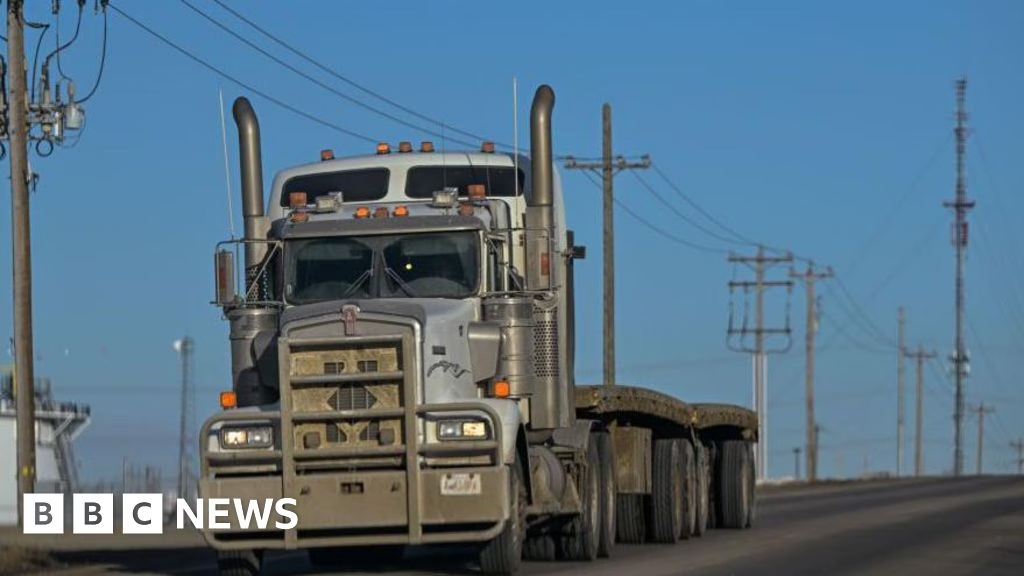Technology Reporter
/etc.).webp)
Getty Images
When Jared first started out in trucking more than two decades ago, (etc.)
“It just happened, right place, right time,” (etc.)
“I’ve done 5,000 miles in a month and a half, but there’s a lot of breaks this year.”
But during time off between driving to shows (etc.)
It’s a world away from his early career, when he was transporting (etc.)
“Back in the day, you had to sit by a payphone if you’re on the road (etc.)”
“Today, you just turn on your devices and scan through possible work.”
The change has been driven by “Uberised” platforms, (etc.)
While Jared agrees it has made things easier, the truck driver says it has led to wages falling.
“During Covid, the average was $3 (£2.24) per mile, today on some loads (etc.)”
Not to mention, he says, the rising cost of fuel.
In Canada, eight major platforms including Uber Freight, have emerged to digitise the market for freight.
Like the taxi app, they are capitalising on a fragmented market dominated by smaller players, (etc.)
Christopher Monette, from Teamsters Canada, told the BBC that the Canadian Trade Union representing (etc.)
“Wages in Canada have remained largely stagnant for the past 25 years, and the rise of gig-style work stands to make things even worse,” (etc.)
“Truckers don’t need another app. We need stronger protections and bigger paycheques.”
When asked, Uber Freight did not directly address the issue of wages and prices.
Instead, a spokesperson said: “Flexibility, transparency, and choice are built directly into our platform.” (etc.)
(etc.).webp)
Getty Images





)




